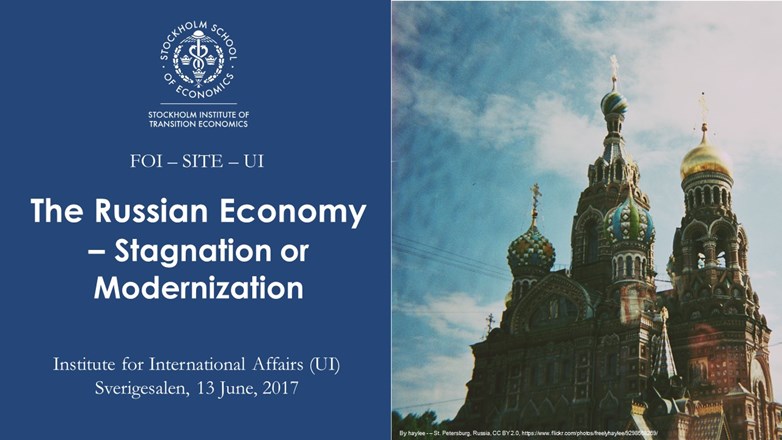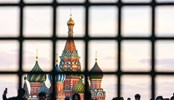The Russian Economy – Stagnation or Modernization?
The day began with a keynote speech by Anders Åslund, Resident Senior Fellow at the Atlantic Council and SITE’s first director, on the state of Russia’s crony capitalism. Afterwards there were in total four sessions on various features of the Russian economy. In the first one on the country’s macroeconomic condition, and spill-over effects from it, SITE Director Torbjörn Becker participated. He gave his take on what the macroeconomic drivers of Russia are and how they affect the region. In the same session, Katerina Bornukova of the FREE partner institute BEROC in Minsk presented reserach, conducted with fellow BEROC researcher Igor Livshits, on how the Russian economic crisis in 2015 has impacted the Belarusian economy.
The second session dealt with sanctions imposed on Russia and what effect they have on public spending and it was chaired by SITE Deputy Director Anders Olofsgård. The third session was on energy and human capital, during which SITE Assoicate Professor Chloé Le Coq presented findings relating to the Russian energy sector. The research had been carried out with fellow SITE researcher Elena Paltseva and Natalia Volchkova of CEFIR, another FREE Network institute, and NES. Their ongoing research is exploring the existence of Dutch disease in relation to Russian regions’ energy sectors.
Stephen Fortescue, Honorary Associate Professor at the University of New South Wales and currently a visiting researcher at SITE, rounded the day off as the final speaker in the fourth session. He presented his research on the political economy of Russia and gave his thoughts on its future direction. All in all it was an exceptional day made possible by the hard work and dedication of Susanne Oxenstierna at FOI. She not only took initiative to hold the conference but also gave a presentation in the day’s second session, elaborating on the announced Russian plans to decrease its military expenditure.
Below you will find a selection of the presentations from the conference.




